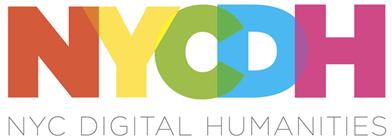Hi All — The DH Methodology course that I will be teaching at Columbia ** STARTS THIS TUESDAY (7/8) **
The course is open to both undergraduates and graduate students. Enrollment is not restricted to Columbia — students from other universities can enroll.
My thanks to those who have already helped in spreading the word. If you know of interested students, please email me at gas2117[at]columbia[dot]edu
Best,
Graham
—
ENGL S3024Q. Introduction to Digital Humanities: Computational Methods for Literary and Cultural Criticism. 3 pts.
Runs from the week of Jul 07 to Aug 15
** OPEN TO BOTH UNDERGRADUATE AND GRADUATE ENROLLMENT
“Digital Humanities” (DH) is an umbrella term encompassing a variety of scholarly communities that reside at the intersection of technology and the humanities. Over the past decade, DH researchers have adopted a number of cutting edge methodologies, many of them notably quantitative and computational. The purpose of this course is to make these methods accessible to undergraduates and to facilitate their application to literary and cultural criticism. The course has several objectives: (1) to survey examples of recent computational criticism, including authorship attribution, computational stylistics, topic analysis, network analysis, and computational narratology; (2) to help students gain a working understanding of available software packages useful to literary and cultural research (e.g., WORDij, Sci2, R, etc.) and data analysis techniques (e.g., word frequency and word pair analysis, network extraction, etc.); (3) to situate recent computational criticism in relationship to earlier critical movements-particularly Structuralism and Russian Formalism.
http://www.columbia.edu/cu/bulletin/uwb/subj/ENGL/S3024-20142-001/
